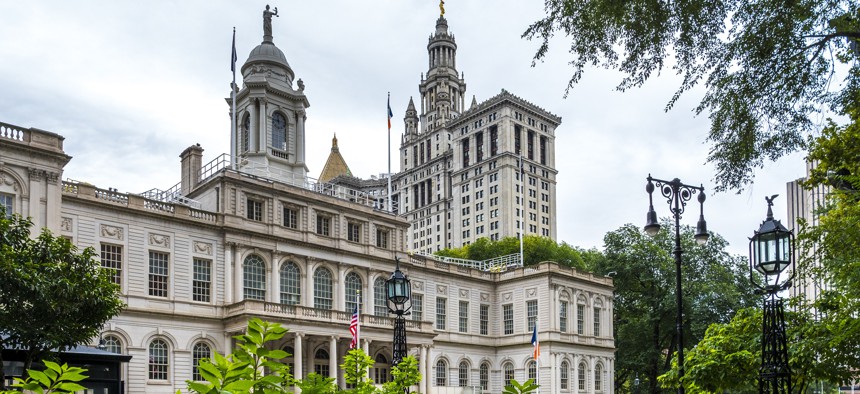Nonprofits
Real Talk: A New Year’s check in on New York City contract delays
While there is continued improvement, an analysis finds that much remains to do for nonprofits waiting to get paid.

New York City Hall with the Manhattan Municipal Building in the background. pidjoe - Getty
The SeaChange team did not think – not even for a second – about New York City Contract delays during the recent holidays – a luxury that nonprofit leaders waiting to get paid don’t have. After all, what could be worse than being unable to pay your staff just before or during holiday time? However, last week we got a request for a quick turnaround cash-flow loan from a nonprofit that has been waiting (and waiting and waiting) to get paid by the city. The loan has got us thinking about payment delays again so we looked to see what data says about how the city is doing:
A few highlights from the data in PASSPort Public:
- Registration continues to be better than under the prior administration. As of Sunday, 75% of new, FY23 non-discretionary contracts had been registered compared with 57% of FY22 contracts as of 1/15/2022. By value the improvement is even greater, 70% of FY23 contracts have been registered versus 31% of FY22 at the same time last year.
- Although this is a significant improvement, we estimate that nonprofits incurred $309 million for work they have done, and continue to do, on new, non-discretionary FY23 contracts prior to registration. Thirty-six organizations incurred costs of $1 million or more; five have incurred costs of $10 million or more. (Find the full list here.)
- Contract registration at the Mayor’s Office of Criminal Justice continues to be catastrophic and shows little improvement over last year. As of Sunday, only 20% of MOCJ’s FY23 contracts have been registered. Based on the average rate of new registrations (i.e. two per month), it will take almost two years to work through the Fiscal 2023 backlog. In fact, more than 10% of MOCJ’s FY22 and FY21 contracts still remain unregistered.
In summary, while there is continued improvement, much remains to do. But I am optimistic that in her role as First Deputy Mayor Sheena Wright will use her new power to advocate for nonprofits. I am also hopeful that Karen Ford, the inaugural executive director of the Mayor’s Office of Nonprofit Services, can make a difference.
One obvious first step is to create a Rapid Response team for MOCJ like the one formed last November to address the payment problems at the Department of Education that were plaguing the Early Childhood sector. While I don’t know what the problem is, MOCJ is far smaller and less complex than the DOE so even a little political attention could likely turn things around. The services being provided under MOCJ contracts are vital for justice and public safety. The city should make it a priority to pay the nonprofits doing the work.
(Here is the analysis supporting this piece. Thanks again to Lisa Flores and MOCs for making the underlying data publicly available through PASSPort Public.)
John MacIntosh is a partner at SeaChange Capital Partners, which provides grants, loans, advice and analysis to help nonprofits work through complex challenges..
NEXT STORY: Opinion: Public banks can help New York meet its ambitious climate goals